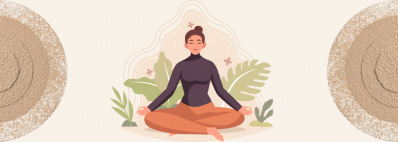Promotional Features
Unveiling the Power of Ashwagandha: The Most Clinically Studied Ashwagandha for Elderly Health and Wellbeing
As the global population ages, there is a growing emphasis on maintaining optimal health and well-being in the elderly population. While conventional medicine plays a crucial role, there has been a surge in the popularity of herbal supplements, with many of them turning to natural remedies to support their health.
The market for health supplements for the elderly population has experienced significant growth in recent years and it is anticipated to increase at a high CAGR of 6% 2022-2032, reaching a value of US$ 265 Bn by 2032 [1].
One of the key reasons for the increased popularity of herbal supplements is their perceived natural and holistic approach to health. Additionally, herbal supplements are believed to offer a broader range of benefits, promoting overall well-being rather than merely targeting specific symptoms. Among the various herbal supplements, Ashwagandha, a powerful adaptogen, has gained significant attention for its potential benefits in elderly well-being and aging.
Benefits of Ashwagandha in Elderly Well-Being and Aging
Ashwagandha (Withania somnifera) root is an ancient medicinal herb renowned for its adaptogenic properties. Adaptogens are substances that help the body adapt to stressors, promoting balance and overall vitality. Ashwagandha root has been studied extensively for its potential benefits in elderly well-being and aging, yielding promising results.
Aging can bring about increased stress levels, which may impact physical and mental health, also causing a cognitive decline, a common concern among the elderly population. Ashwagandha root has been found to reduce stress and anxiety by lowering cortisol levels, a hormone associated with stress. By mitigating stress, Ashwagandha root may contribute to improved quality of sleep and overall well-being in the elderly. Ashwagandha root has shown potential in supporting cognitive function and memory.
A 12-week study evaluated the effect of KSM-66 Ashwagandha root extract on improving sleep and general well-being in elderly participants. Researchers found that those supplemented with the KSM-66 Ashwagandha group significantly improved sleep quality, quality of life, and mental alertness on rising [2]. At the end of the study, a 57.1% and 33.5% reduction were seen in the sleep quality score and sleepiness scale, respectively. This reduction indicates a better quality of sleep. Also, KSM-66 Ashwagandha supplementation resulted in significant increases of 24.2%, 22.4%, 18.9%, 5.6%, and 9.8% in Global, Physical, Psychological, Social relationship, and environmental domain scores of WHO-QoL respectively.
In another soon-to-be-published study, researchers evaluated the ability of 8 weeks of KSM-66 ashwagandha root extract supplementation on frailty and quality of life in elderly adults. KSM-66 Ashwagandha root extract supplementation found a significant reduction in stress, and a significant improvement in the Frailty score, cognitive function, and overall quality of life [3].
In a published study 50 adults consumed 300 mg of KSM-66 ashwagandha root extract or placebo, twice daily for 8 weeks. The KSM-66 group experienced improvements in sustained attention, information processing, and overall cognitive memory [4].
Another research examined the effects of KSM-66 ashwagandha root extract supplementation for 8 weeks in 64 adults and found remarkable results in reducing stress and subjective measures of stress. At the study’s end, those in the KSM-66 group experienced a 28% reduction in cortisol levels. Also, the ashwagandha root produced a 44% reduction on the Perceived Stress Scale (PSS) and reduced depression, anxiety, and stress by more than 70% on the Depression Anxiety Stress Scale (DASS) [5].
Ashwagandha root has been used for millennia as a Rasayana or “life extender” in Ayurveda. Two studies were conducted on KSM-66 Ashwagandha root extract to investigate its anti-aging activity.
One study investigated the effects of KSM-66 Ashwagandha on Telomerase activity. Telomerase, a ribonucleoprotein, has the ability to arrest telomere loss, presenting a potential avenue to ameliorate the effects of aging. Researchers found that the HeLa cells treated with ashwagandha at 10-50 μg concentrations showed an increase of approximately 45% in telomerase activity. These findings suggest that KSM-66 Ashwagandha root extract has the potential to boost telomerase activity, alleviate aging effects, and potentially extend the human lifespan [6].
Researchers evaluated the effect of KSM-66 Ashwagandha in enhancing the lifespan of C.elegans. They treated the worms with varying concentrations of KSM-66 Ashwagandha root extract and observed their survival rates and lifespan. The purified extract increased lifespan by 21.4% compared to the control. The findings suggest that KSM-66 Ashwagandha root extract possesses potential anti-aging [7].
Conclusion
As the elderly population seeks natural alternatives for maintaining health and well-being, the herbal supplements industry is witnessing a surge in popularity. Ashwagandha, in particular, has gained attention for its potential benefits in elderly well-being and aging. Its adaptogenic and anti-aging properties, stress-reducing effects, cognitive support, and potential for increasing energy levels make it a valuable herbal supplement for the elderly population [6].
References
- https://www.futuremarketinsights.com/reports/older-adults-health-supplements-market
- Kelgane, S. B., Salve, J., Sampara, P., & Debnath, K. (2020). Efficacy and Tolerability of Ashwagandha Root Extract in the Elderly for Improvement of General Well-being and Sleep: A Prospective, Randomized, Double-blind, Placebo-controlled Study. Cureus, 12(2), e7083.
- Unpublished data under peer review
- Choudhary, D., Bhattacharyya, S., & Bose, S. (2017). Efficacy and Safety of Ashwagandha (Withania somnifera (L.) Dunal) Root Extract in Improving Memory and Cognitive Functions. Journal of dietary supplements, 14(6), 599–612.
- Chandrasekhar, K., Kapoor, J., & Anishetty, S. (2012). A prospective, randomized double-blind, placebo-controlled study of safety and efficacy of a high-concentration full-spectrum extract of ashwagandha root in reducing stress and anxiety in adults. Indian journal of psychological medicine, 34(3), 255–262.
- Raguraman, V. and Subramaniam, J. (2016) Withania somnifera Root Extract Enhances Telomerase Activity in the Human HeLa Cell Line. Advances in Bioscience and Biotechnology, 7, 199-204. doi:10.4236/abb.2016.74018
- Kumar, R., Gupta, K., Saharia, K., Pradhan, D., & Subramaniam, J. R. (2013). Withania somnifera root extract extends lifespan of Caenorhabditis elegans. Annals of neurosciences, 20(1), 13–16. https://doi.org/10.5214/ans.0972.7531.200106







